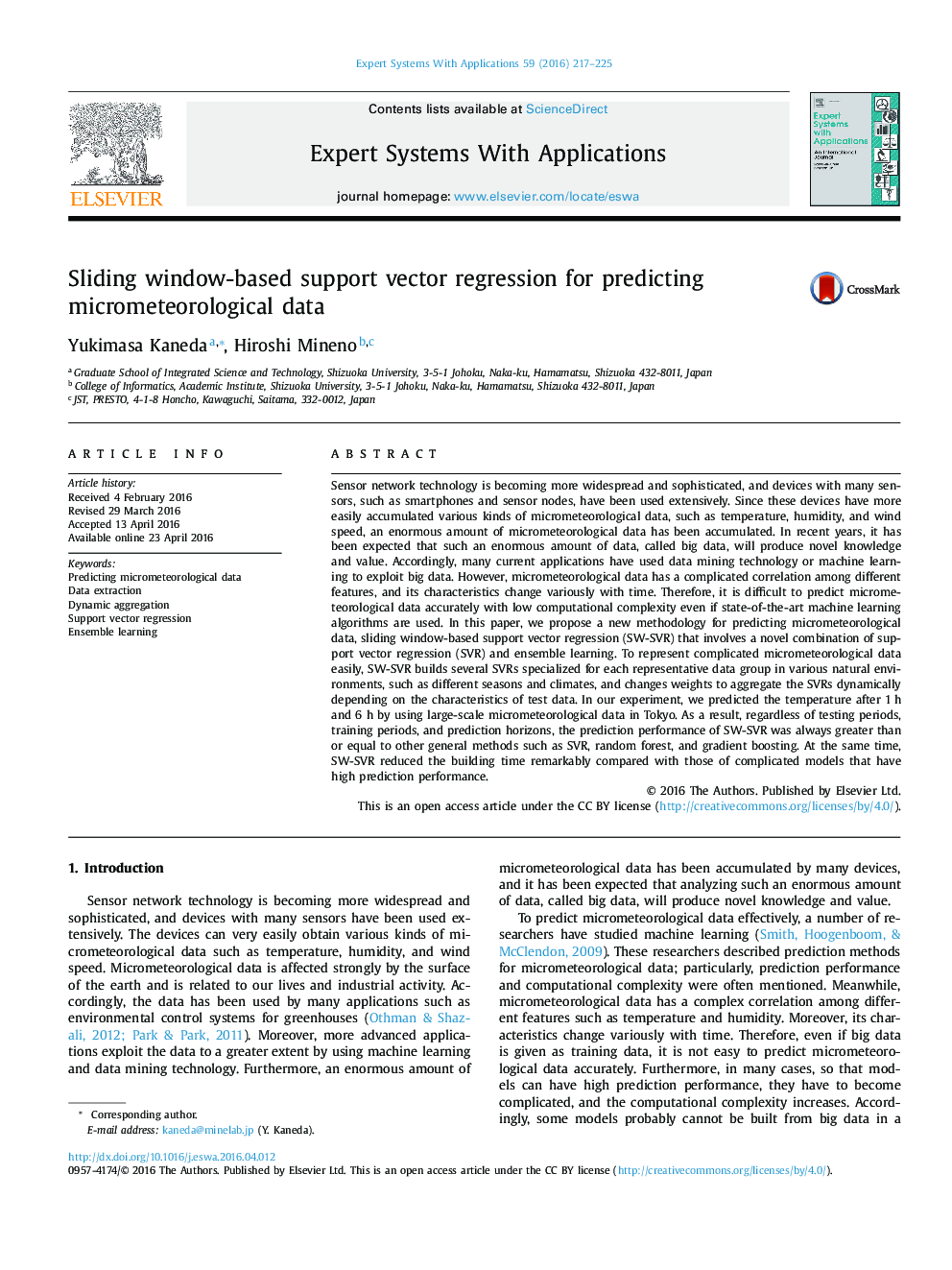| کد مقاله | کد نشریه | سال انتشار | مقاله انگلیسی | نسخه تمام متن |
|---|---|---|---|---|
| 6855706 | 660734 | 2016 | 9 صفحه PDF | دانلود رایگان |
عنوان انگلیسی مقاله ISI
Sliding window-based support vector regression for predicting micrometeorological data
ترجمه فارسی عنوان
رگرسیون بردار پشتیبانی بر اساس پنجره بردار برای پیش بینی داده های میکرومترئورولوژیکی
دانلود مقاله + سفارش ترجمه
دانلود مقاله ISI انگلیسی
رایگان برای ایرانیان
کلمات کلیدی
پیش بینی داده های میکرومترئورولوژیکی، استخراج داده ها، تجمع پویا، رگرسیون بردار پشتیبانی، یادگیری گروهی
موضوعات مرتبط
مهندسی و علوم پایه
مهندسی کامپیوتر
هوش مصنوعی
چکیده انگلیسی
Sensor network technology is becoming more widespread and sophisticated, and devices with many sensors, such as smartphones and sensor nodes, have been used extensively. Since these devices have more easily accumulated various kinds of micrometeorological data, such as temperature, humidity, and wind speed, an enormous amount of micrometeorological data has been accumulated. In recent years, it has been expected that such an enormous amount of data, called big data, will produce novel knowledge and value. Accordingly, many current applications have used data mining technology or machine learning to exploit big data. However, micrometeorological data has a complicated correlation among different features, and its characteristics change variously with time. Therefore, it is difficult to predict micrometeorological data accurately with low computational complexity even if state-of-the-art machine learning algorithms are used. In this paper, we propose a new methodology for predicting micrometeorological data, sliding window-based support vector regression (SW-SVR) that involves a novel combination of support vector regression (SVR) and ensemble learning. To represent complicated micrometeorological data easily, SW-SVR builds several SVRs specialized for each representative data group in various natural environments, such as different seasons and climates, and changes weights to aggregate the SVRs dynamically depending on the characteristics of test data. In our experiment, we predicted the temperature after 1Â h and 6 h by using large-scale micrometeorological data in Tokyo. As a result, regardless of testing periods, training periods, and prediction horizons, the prediction performance of SW-SVR was always greater than or equal to other general methods such as SVR, random forest, and gradient boosting. At the same time, SW-SVR reduced the building time remarkably compared with those of complicated models that have high prediction performance.
ناشر
Database: Elsevier - ScienceDirect (ساینس دایرکت)
Journal: Expert Systems with Applications - Volume 59, 15 October 2016, Pages 217-225
Journal: Expert Systems with Applications - Volume 59, 15 October 2016, Pages 217-225
نویسندگان
Yukimasa Kaneda, Hiroshi Mineno,
